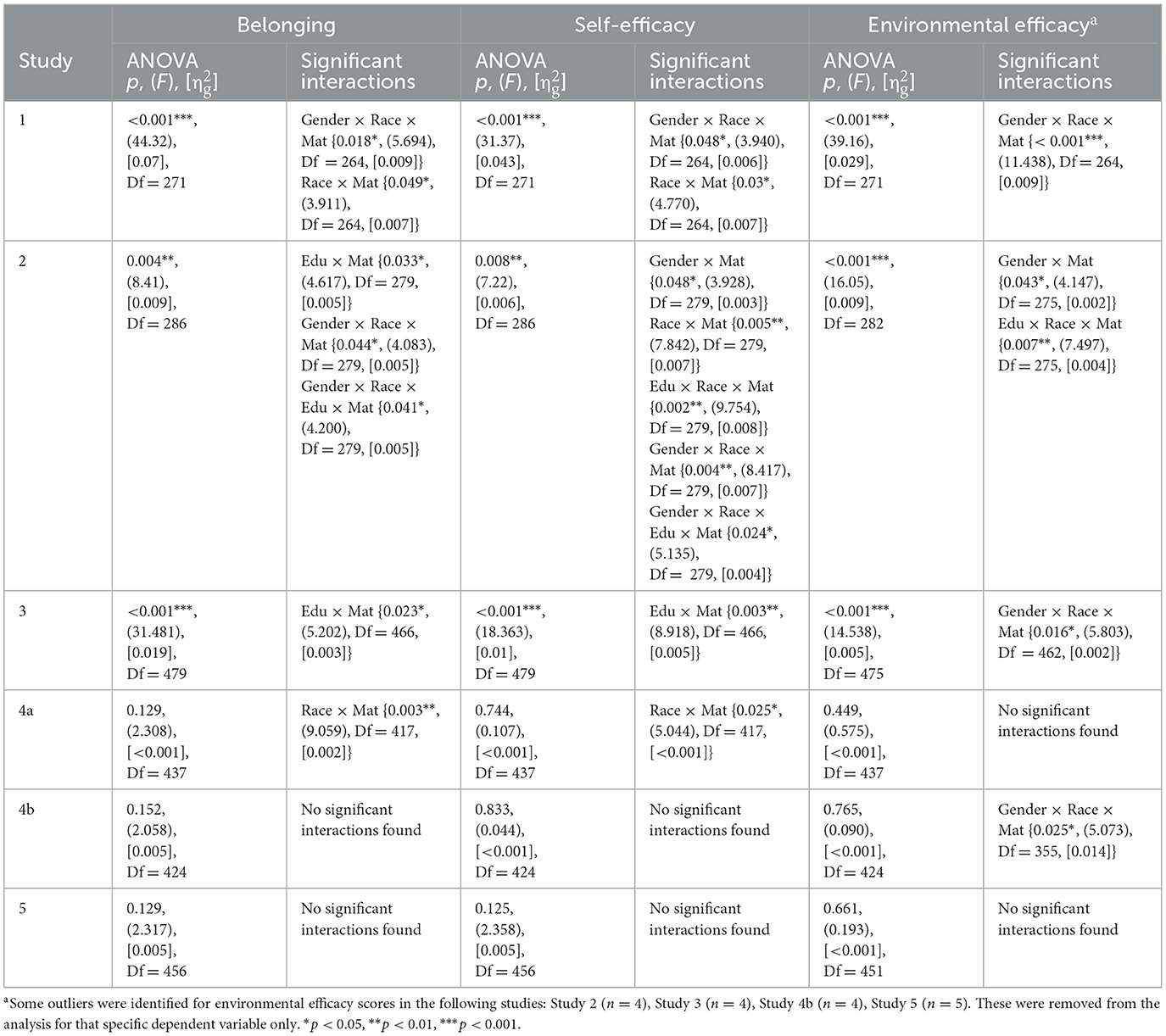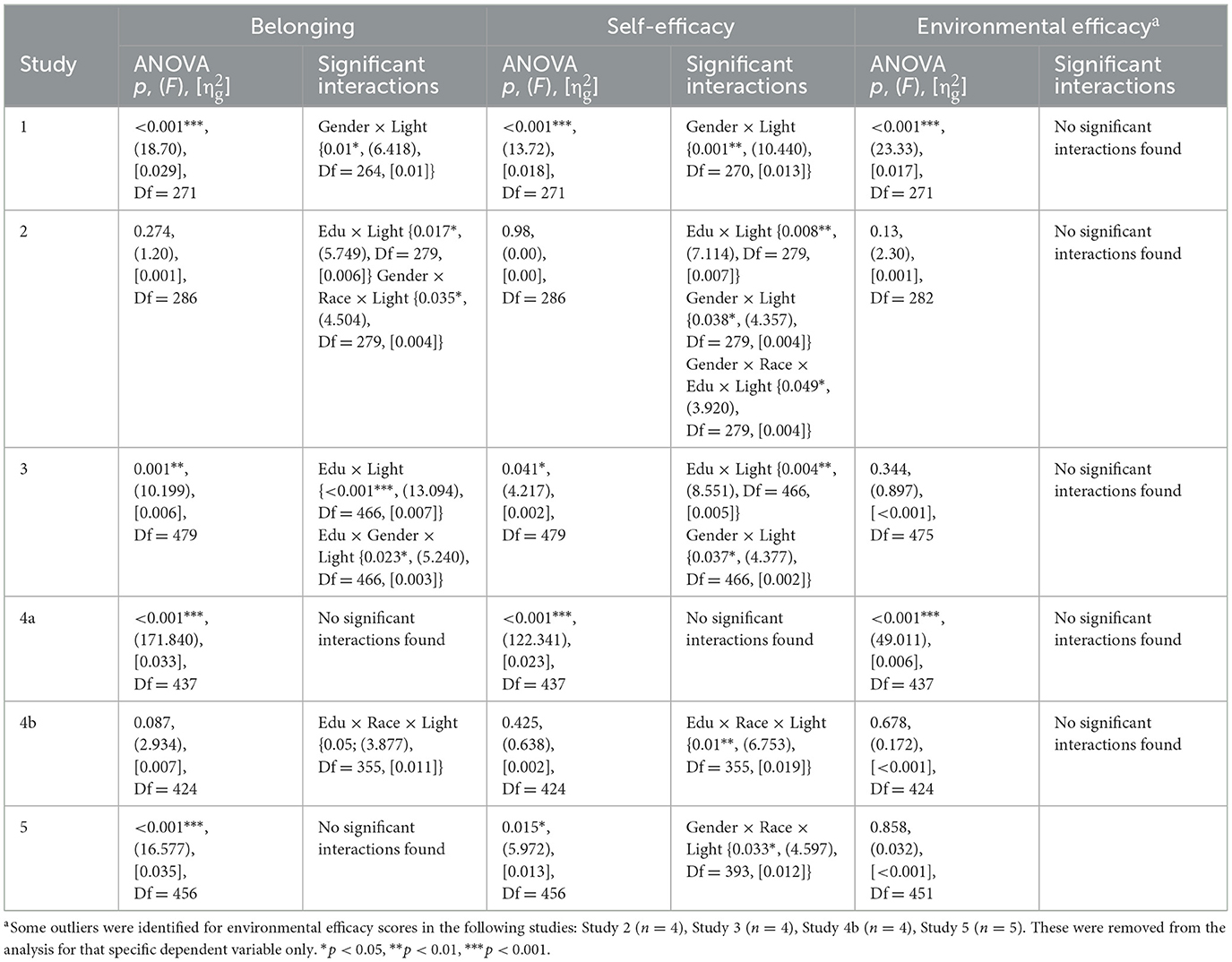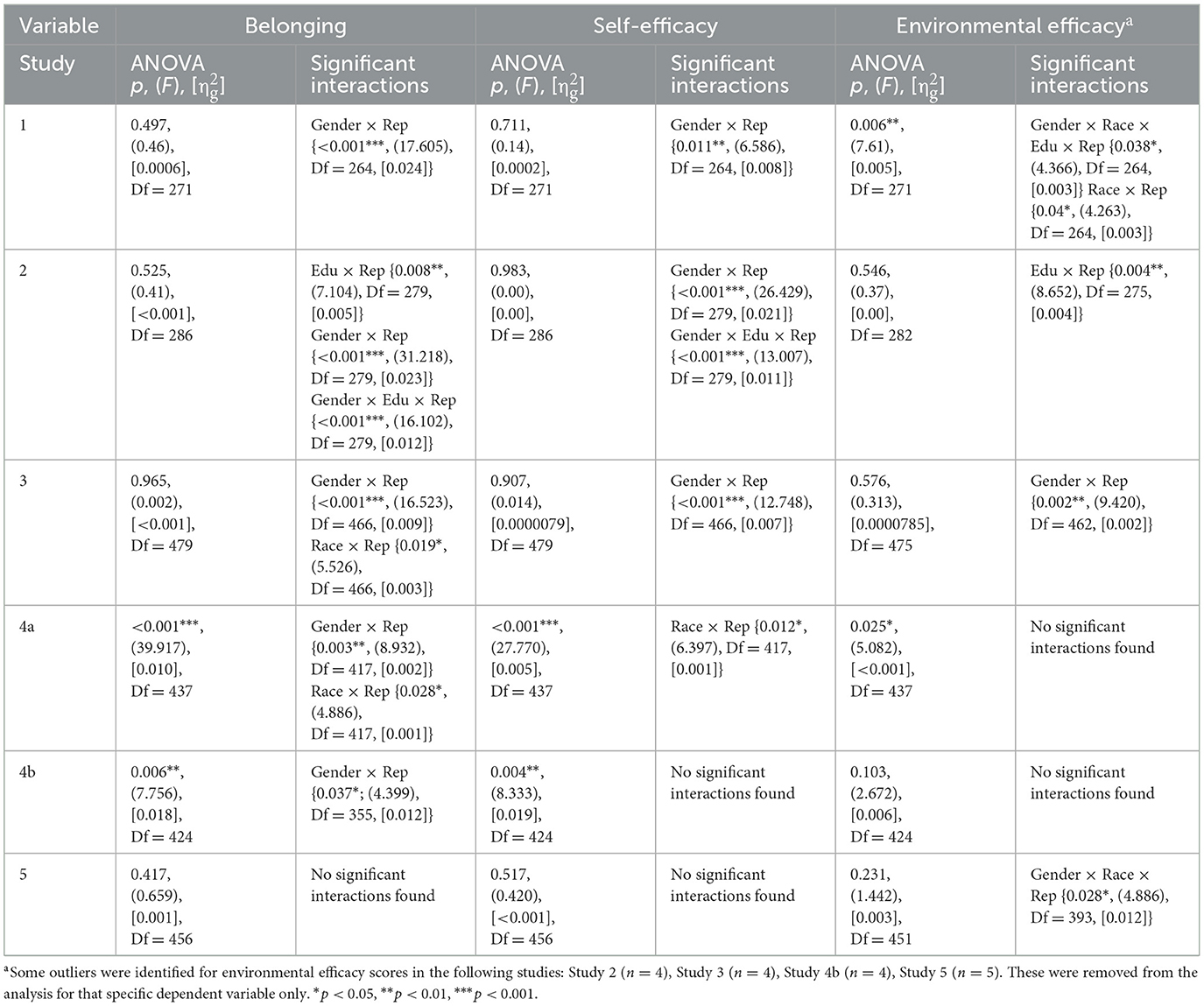- 1Department of Civil and Environmental Engineering, Stanford University, Stanford, CA, United States
- 2Department of Psychiatry and Behavioral Sciences, Stanford University, Stanford, CA, United States
- 3Graduate School of Education and the Woods Institute for the Environment, Stanford University, Stanford, CA, United States
- 4Department of Psychology, Stanford University, Stanford, CA, United States
- 5School of Engineering, Dartmouth College, Hanover, NH, United States
- 6Department of Psychology and Child Development, California Polytechnic State University, San Luis Obispo, CA, United States
- 7Department of Computer Science, Stanford University, Stanford, CA, United States
A corrigendum on
Use of crowdsourced online surveys to study the impact of architectural and design choices on wellbeing
by Altaf, B., Bianchi, E., Douglas, I. P., Douglas, K., Byers, B., Paredes, P. E., Ardoin, N. M., Markus, H. R., Murnane, E. L., Bencharit, L. Z., Landay, J. A., and Billington, S. L. (2022). Front. Sustain. Cities 4:780376. doi: 10.3389/frsc.2022.780376
In the published article, there was an error in Tables 4, 6, 8 as published. The effect sizes in our tables were mislabeled as “η2” (eta-squared) but should have been labelled as “” (generalized eta-squared). All instances have been replaced by “”.
The corrected Tables 4, 6, 8 and their caption appear below.
A correction has been made to Results Per Independent Variable, Paragraph 1, Page 7. This sentence previously stated: “Our results are organized for each independent variable with subsections for each dependent variable. The ANOVA results are reported using p-value (p), F ratio (F), degrees of freedom (df) and effect size (η2).”
The corrected sentence appears below:
“Our results are organized for each independent variable with subsections for each dependent variable. The ANOVA results are reported using p-value (p), F ratio (F), degrees of freedom (df), and effect size ().”
The authors apologize for this error and state that this does not change the scientific conclusions of the article in any way. The original article has been updated.
Publisher's note
All claims expressed in this article are solely those of the authors and do not necessarily represent those of their affiliated organizations, or those of the publisher, the editors and the reviewers. Any product that may be evaluated in this article, or claim that may be made by its manufacturer, is not guaranteed or endorsed by the publisher.
Keywords: meta-analysis, natural materials, natural light, sense of belonging, self-efficacy, diversity, environmental efficacy, design interventions
Citation: Altaf B, Bianchi E, Douglas IP, Douglas K, Byers B, Paredes PE, Ardoin NM, Markus HR, Murnane EL, Bencharit LZ, Landay JA and Billington SL (2024) Corrigendum: Use of crowdsourced online surveys to study the impact of architectural and design choices on wellbeing. Front. Sustain. Cities 6:1458100. doi: 10.3389/frsc.2024.1458100
Received: 01 July 2024; Accepted: 08 July 2024;
Published: 23 July 2024.
Edited and reviewed by: Thomas Krafft, Maastricht University, Netherlands
Copyright © 2024 Altaf, Bianchi, Douglas, Douglas, Byers, Paredes, Ardoin, Markus, Murnane, Bencharit, Landay and Billington. This is an open-access article distributed under the terms of the Creative Commons Attribution License (CC BY). The use, distribution or reproduction in other forums is permitted, provided the original author(s) and the copyright owner(s) are credited and that the original publication in this journal is cited, in accordance with accepted academic practice. No use, distribution or reproduction is permitted which does not comply with these terms.
*Correspondence: Basma Altaf, YmFsdGFmQHN0YW5mb3JkLmVkdQ==; Eva Bianchi, ZWJpYW5jaGlAc3RhbmZvcmQuZWR1
†These authors have contributed equally to this work and share first authorship
 Basma Altaf
Basma Altaf Eva Bianchi
Eva Bianchi Isabella P. Douglas
Isabella P. Douglas Kyle Douglas
Kyle Douglas Brandon Byers1
Brandon Byers1 Nicole M. Ardoin
Nicole M. Ardoin Hazel R. Markus
Hazel R. Markus Elizabeth L. Murnane
Elizabeth L. Murnane Lucy Z. Bencharit
Lucy Z. Bencharit James A. Landay
James A. Landay Sarah L. Billington
Sarah L. Billington

